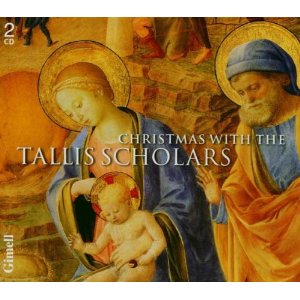Music |
Christmas with the Tallis Scholars
By
Published: Nov 17, 2010
Category:
Classical
When J.S. Bach wrote “SDG” on the bottom of every composition — short for “soli deo gloria,” or “to God alone be the glory” — he wasn’t being falsely modest. In his time, individual ego was unthinkable; your purpose in life was to add your small stone to the building of God’s cathedral.
We hear that collective ambition in the great choral pieces of the Renaissance — magnificent voices blending together to sing, in harmony, their praise to the Almighty. Today, we hear that holy music, delivered intact, in the recordings of The Tallis Scholars.
Founded in 1973 by Peter Phillips, this English group has released 50 CDs and given 1,600 concerts. Over the decades, the Scholars have become the gold standard of Renaissance music — I hear them every chance I get, and I am always transported. I’m hardly alone; several generations of music-lovers around the world have learned about Renaissance music’s gorgeous arcs of flowing sound from the Tallis Scholars. [To buy the Christmas CD from Amazon, click here. To read about the “Tallis Scholars Sing Thomas Tallis” CD on Head Butler, click here. To read about the group’s recording of the Allegri “Miserere,” click here.]
Most of the group’s recent releases were recorded at a 16th century church in a remote part of Norfolk, England, notable for its acoustics and the absence of traffic. Here’s Peter Phillips on the sound the Scholars try to create in this setting:
It’s bright, agile and endlessly flexible. It’s very well-tuned and blended and soft and seductive, so it draws people in. It’s not abrasive, not harsh, but it’s not weak either. There’s real tension in it. It’s a sort of flat paradox, but it’s immensely strong and tough and soft and caressing. And over the years, it’s gotten more forthright, so it’s hard to remain indifferent to it when it’s in front of you. It demands attention. People are not there for the words, they’re there for the sound of the music. Because it’s abstract music, a lot of it, anyway.
For abstract music, it’s gloriously immediate. As background music, it soothes. As music to contemplate, it’s surprisingly powerful. And in live performance, it’s sublime.


